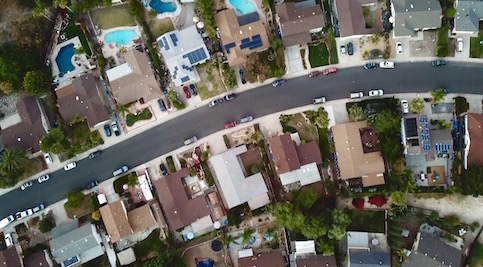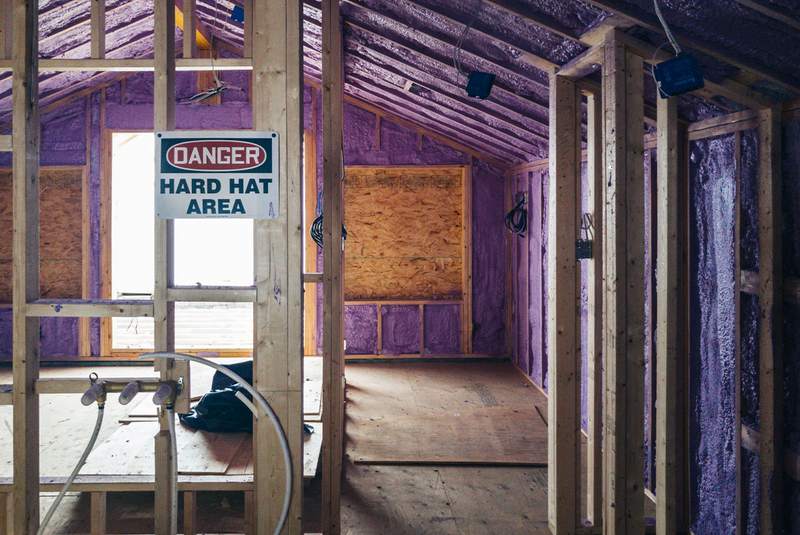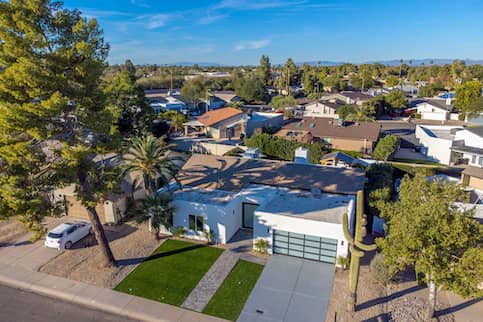When you have neighbors on either side of your home, encroachments have the potential to cause animosity and stress. Dealing with real estate encroachments can involve more than just knowing your property lines, though.
With this in mind, let’s walk through what an encroachment in real estate is, the different types of property encroachment and how to deal with encroachment issues
Encroachment Meaning
Encroachment in real estate is a type of encumbrance referring to when a neighbor builds or extends a property feature such that it encroaches – or intrudes – on or over your property. Whether intentional or by accident, encroachment is a property rights violation that can:
- Complicate the sale of your house
- Cause damage to your property
- Create liability issues
- Compromise your relationship with your neighbors
Property Encroachment Issues
Even if the encroachment doesn’t necessarily bother you, it’s worth considering a couple of factors if you’re looking to purchase a home.
Some negative effects of property encroachments can include:
Liability
If a neighbor builds something that encroaches on your property due to the use of that structure, you could be held liable. Aside from the possibility of an injury or significant damage, you may have to file a claim with your homeowners insurance, which could result in higher insurance premiums.
Resale Value
Even if you’re fine with someone possibly using your property for a specific purpose, it doesn’t mean the next person who lives there will be. A potential buyer who finds out they may have to deal with an encroachment could choose to pass on buying a property or offer less money, so this is important to consider.
What’s Your Goal?
Buy A Home
Discover mortgage options that fit your unique financial needs.

Refinance
Refinance your mortgage to have more money for what matters.
Tap Into Equity
Use your home’s equity and unlock cash to achieve your goals.
Types Of Encroachment In Real Estate
The significance of each type of property encroachment can be measured on a sliding scale. Make yourself familiar with minor, major and structural encroachments to become a well-versed homeowner.
Minor Encroachment
Not every potential encroachment needs to cause great distress. A few encroachments unlikely to have a major impact on insurance needs or resale value include:
- Fences
- Gardens
- Basketball hoops
- Landscaping that has grown beyond the neighbor’s property line
An encroachment could even be something as simple as a shrub, tree or other landscaping feature that has grown beyond your neighbor’s property line.
Major Encroachment
Some property encroachment issues should definitely cause a red flag. Construction of a garage or part of a house on your property would fall into this category. Other items that can cause issues are an overhang or a tree branch extending from your neighbor’s land onto your property. Consider the potential for major property damage or serious injury if either lands on something or someone on your property.
Structural Encroachment
Structural encroachment occurs when a property owner specifically builds something on land they don’t own. This issue is typically between neighbors, but it could also be between the property owner and a municipality since streets and sidewalks are often the property of the city for public use.
A structural encroachment could be an upstairs deck or balcony that partially overhangs on your property, or it could be a neighbor’s driveway built to impinge on your property. Garages or sheds would also fall into this category.
Ready To Become A Homeowner?
Get matched with a lender that can help you find the right mortgage.
Encroachment Vs. Easement
The key differences between an encroachment and an easement are based on mutual neighborly consent and ownership rights.
Let’s take a closer look at where easement and encroachment diverge.
Easement
An easement starts with something being built on or above your property. The key distinction here is that the neighbor has entered an agreement to access that portion of the property, often for a specific purpose.
Here are a couple of quick examples of situations when an easement might come into play.
- Prepurchase use: Let’s say your neighbor had built a shed on your property before it was fully developed for residential use. You might agree to an easement granting them access to their shed.
- Access use: You might also have a big, shared driveway that your neighbor uses to gain access to their property. This would be another situation when an agreement concerning an easement might be in order.
Depending on state law, though, if a neighbor has used your property for a certain amount of time, they can still gain legal access to the property without your explicit consent. This is called a prescriptive easement.
Encroachment
If your neighbor builds something that’s either partially or wholly on your property without an agreement, it’s considered an encroachment. In fact, illegal encroachment problems that drag on for years may legally allow your neighbor to claim an adverse possession of said property.
If you’re dealing with an encroacher unwilling to concede use of your property, you may want to consult a lawyer who’s familiar with local code on squatter’s rights. Unlike an easement, adverse possession can grant ownership rights to an encroacher.
Take The First Step To Buying A Home
Find a lender that will work with your unique financial situation.
How To Deal With An Encroachment
If you’re looking to get an encroachment handled when buying or selling a property, here are a few solutions you can try.
Have A Property Survey Done
It can only help your case to have officially documented evidence of your property lines. You may already have documentation of your property boundaries from when you bought the home, but getting a new property survey done can ensure you have the most up-to-date information.
This way you can know for sure if there’s an encroachment happening on your property.
Try Talking With Your Neighbor
Approaching your neighbor amicably about any encroachments could prevent any future hostilities. Your neighbor may be willing to move or address minor or major encroachments like gardens or overgrown branches. Often, a friendly conversation can be enough to resolve the issue. However, it might be a good idea to get the mutual agreement in writing or negotiate a legal easement.
If you happen to sell the home, it’s important to let potential buyers know about any encroachment issues you discussed with your neighbor.
Grant Your Neighbor An Easement
If the encroachment doesn’t bother you, consider granting your neighbor an easement to your property. This can be a friendly compromise if the encroachment poses no inconvenience or harm to your home.
Sell The Land To Your Neighbor
Another option is to sell the land being encroached on to your neighbor. This way your neighbor doesn��’t have to go through the hassle of moving something that may be difficult or impossible to uproot, and you could receive some sort of compensation for the portion of your property that you’d be giving up.
If your neighbor decides to buy the land, consult your mortgage lender and/or a real estate attorney so you can be sure you can do this with accurate land survey records. Your lender also has to be aware since your property serves as collateral for any mortgage you might have.
Go To Court With The Encroachment
If you and your neighbor can’t come to an amicable or fair agreement, going to court is always an option. At this point, it’s probably a good idea to get a real estate attorney involved. A judge may grant an easement or make a judgment on the value of the encroached property for the purposes of a sale.
The Bottom Line
Encroachments should ideally be dealt with sooner than later, or you could risk neighborly spats or harm to your property’s value. Start resolving the conflict by getting a property survey and talking with your neighbor, and escalate from there if necessary. Even if you’re not bothered by an encroachment, it could seriously affect your ability to sell the home later.

Victoria Araj
Victoria Araj is a Staff Writer for Rocket Companies who has held roles in mortgage banking, public relations and more in her 15-plus years of experience. She has a bachelor’s degree in journalism with an emphasis in political science from Michigan State University, and a master’s degree in public administration from the University of Michigan.












